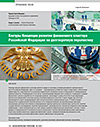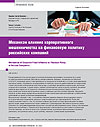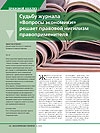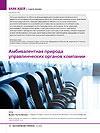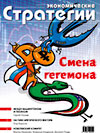Contours of the Concept of Developing Financial Cluster of the Russian Federation in the Long-Term Period
Availability of a strong financial cluster is one of the key conditions for further economic growth of the Russian Federation. The purpose of its creation is to form conditions for protecting investors and providing efficiency, transparency and development of the national stock market and enhancing its international attractiveness. In this article, the author, having analyzed the world experience in establishing a financial center and working out its development concept, recommends to create an Agency for Financial Cluster (Center) Regulation or an Investment Agency. In turn, it is recommended for the agency to establish an international council as a consultative and advisory body. In such a situation, priority of the state policy should become the improvement of system-forming factors that have a long-term impact on forming the practice of financial institutions activity: the quality of state regulation; the quality of corporate legislation; availability of reliable and high-quality information, as well as free access to it; the level of development of the financial sector infrastructure, the level of trust and awareness of the public about financial sector services (financial literacy realization); training of professional personnel for financial market; improvement of accounting and taxation of financial market participants and financial instruments.



